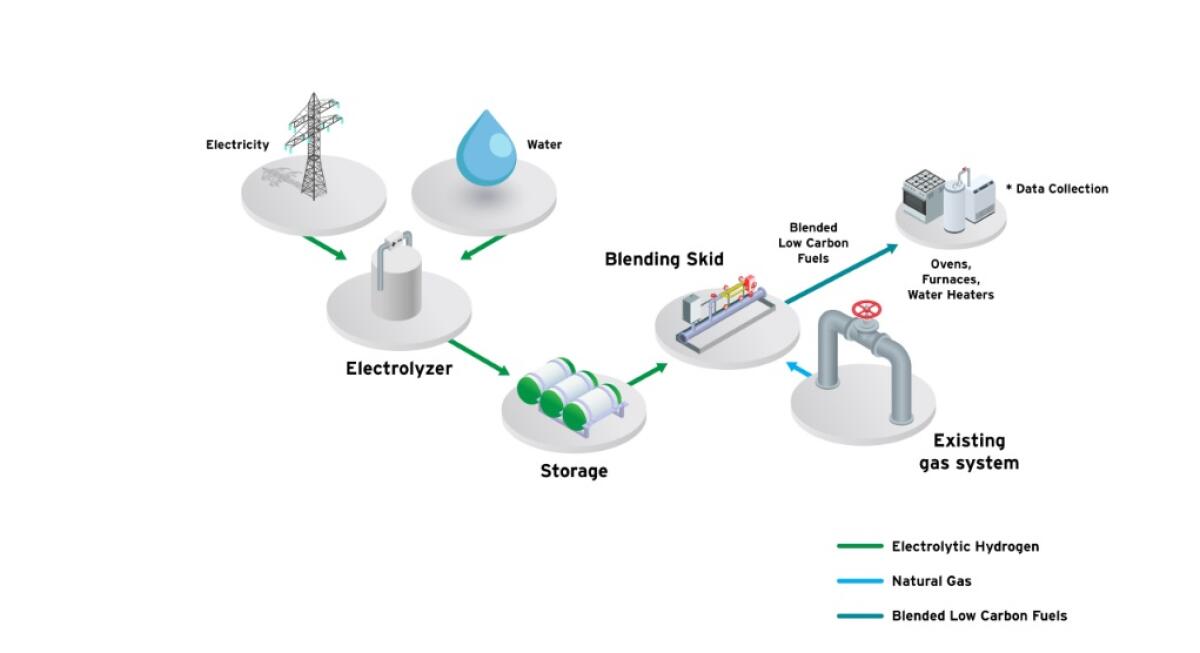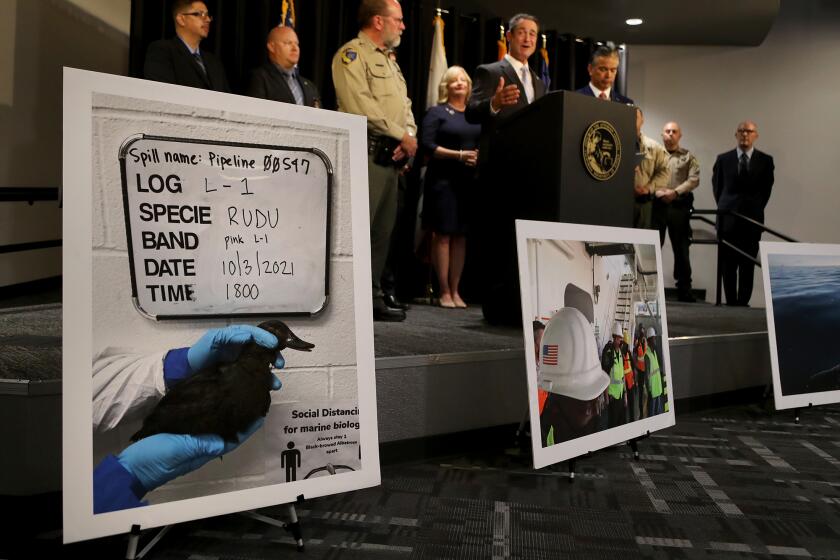Researchers want to mix renewable fuels into existing gas lines at UC Irvine

Researchers exploring the possibility of using existing infrastructure to deliver cleaner alternatives for fossil fuels to people in a real-world setting submitted a proposal Thursday to do precisely that on the campus of UC Irvine.
The planned experiment was submitted for approval by the California Public Utilities Commission by the Southern California Gas Co. in collaboration with the university. They plan to use a device called an electrolyzer to convert water into hydrogen, an alternative to natural gas that does not produce carbon dioxide when it burns. That will then be mixed into the fuel being piped through existing lines in parts of the campus.
“Research at UCI has shown that we cannot achieve high renewable power use without the features of hydrogen,” Jack Brouwer, director of the UCI-based National Fuel Cell Research Center, wrote in a news release issued Friday by SoCalGas.
At the start of the proposed experiment, hydrogen would make up about 5% of the fuel mixture running through the campus’s natural gas lines, according to SoCalGas’s release. But over time, they hope to ramp that blend up to 20% hydrogen, and that may lead to substantial reductions in harmful emissions, according to the utility.
“A 20% clean hydrogen blend in a system as large as Southern California’s could reduce CO2 emissions in an amount equivalent to removing more than a million passenger vehicles from the road for a year,” Neil Navin, vice president for clean energy innovations at SoCalGas wrote in the news release.
If the plan is approved, the hydrogen-natural gas mixture would be used to power water heaters, boilers, furnaces ovens and other equipment in the Mesa Arts Building, part of Mesa Court Housing (29 halls and three towers), the Mesa Office Building, Alumni Center, art studios, and a food court. It would take about a year and six months to design and install the required equipment.
Amplify Energy has agreed to a plea deal on six misdemeanor criminal charges, Orange County Dist. Atty. Todd Spitzer announced Thursday.
That would be followed by another two years of testing, according to documents submitted by SoCalGas to the CPUC. And after all the data has been collected, researchers would spend about nine months analyzing the results.
The experiment comes in the wake of a 2021 study commissioned by the CPUC and conducted by scientists at UC Riverside, which found that developing methods to deliver hydrogen fuel to homes and businesses may be vital in helping California reach its environmental goals.
“The current heat wave we are experiencing makes clear the urgency of decarbonizing our economy as quickly as possible,” state Sen Dave Min (D-Irvine) wrote in SoCalGas’ release.
The project proposed for demonstration at UCI is similar to a different hydrogen-blending experiment planned by researchers with San Diego Gas and Electric and another by Southwest Gas at the University of Nevada, Las Vegas, SoCalGas spokeswoman Christine Detz said. Both of those would blend the cleaner burning fuel into plastic gas lines, while the experiment to be conducted by SoCalGas would study its effects on metal pipes.
All the latest on Orange County from Orange County.
Get our free TimesOC newsletter.
You may occasionally receive promotional content from the Daily Pilot.





